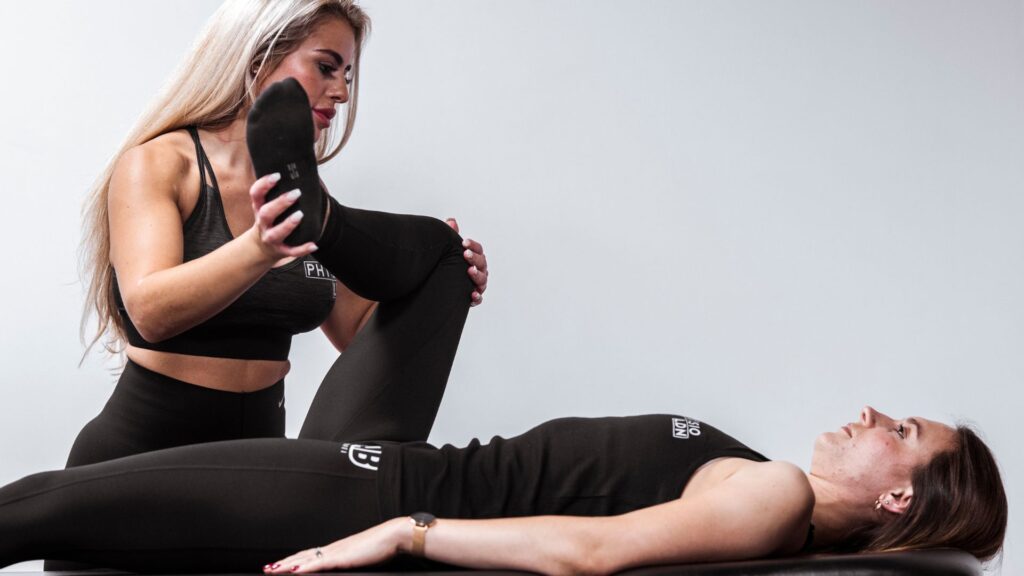Table of Contents
Main Takeaways
- Start Rehab Early to Prevent Setbacks: Beginning physiotherapy within 1–2 weeks post-surgery helps reduce stiffness, muscle atrophy, and improper compensatory movements that can delay recovery.
- Structured Physio Accelerates Healing: Bespoke, timeline-based exercise progressions and manual therapy techniques can shorten recovery time by up to 30% and reduce post-op complications.
- Home Exercises and Posture Matter: Daily home routines and maintaining proper posture between physio sessions are essential for regaining strength, mobility, and avoiding new injuries like lower back pain.
- Pain Management and Mental Resilience are Crucial: Using ice, heat, or stimulation therapies alongside motivational goals strengthens both physical recovery and emotional well-being throughout the rehab journey.
- Professional Support and Insurance Ease the Process: Clinics like One Body LDN offer insured sessions and free consultations, ensuring expert guidance tailored to your surgery and lifestyle, without unnecessary financial stress.
Undergoing orthopaedic surgery—whether it’s a knee replacement, hip operation, or spinal fusion—marks a pivotal step towards regaining function and alleviating long-standing pain. Yet, post-operative rehab is equally vital for achieving a complete and swift recovery.
According to NHS Digital, nearly 200,000 orthopaedic procedures are carried out in the UK annually, with a significant portion taking place in London’s leading medical centres.
Unfortunately, a large number of patients underestimate the complexities of post-surgical rehabilitation and either delay or skip the critical steps.
In this post, we’ll discuss the best recovery practices following orthopaedic surgery and pinpoint how physiotherapy in London can accelerate healing, minimise complications, and get you back on your feet—whether you’re a corporate executive returning to deadlines or someone seeking to resume a vibrant social life.
We’ll explore common post-operative hurdles, illustrate why professional physio support is crucial, and suggest practical strategies for regaining strength and mobility.
If you’re eager to ensure that the substantial investment in surgery yields long-term, high-quality outcomes, read on. This piece will guide you through every aspect of post-orthopaedic recovery, from timeline-based exercises to the significance of consistent follow-ups.
What Happens Without Proper Rehab?
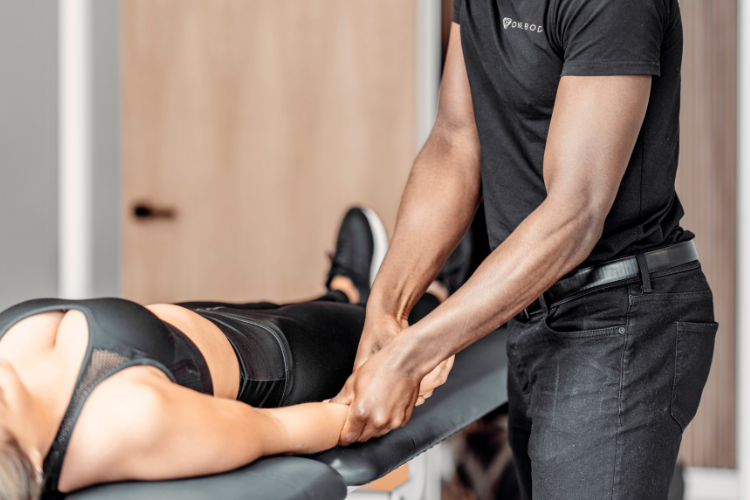
Stiffness, Muscle Atrophy, Risk of Re-Injury
Post-surgery, the operated area often remains immobilised or partially used for several weeks, prompting muscle weakening and joint stiffness. A 2021 report from the British Journal of Sports Medicine indicated that 30% of patients who neglect structured rehab after orthopaedic surgery face lingering muscle atrophy up to 6 months later.
Moreover, reliance on compensatory movements—like favouring one leg or twisting the spine abnormally—can foment new injuries, including lower back pain from misaligned posture.
Prolonged Lower Back Pain from Compensations
The body compensates when one region is weakened or immobilised, inadvertently loading the lumbar spine. For instance, a hip replacement patient might slightly tilt their pelvis to guard the surgical site, placing undue stress on the lower vertebrae.
Without targeted physio interventions to restore proper gait patterns, these compensations can translate into chronic lower back issues—an unwelcome addition to your recovery woes.
Why Expert Guidance Speeds and Secures Recovery
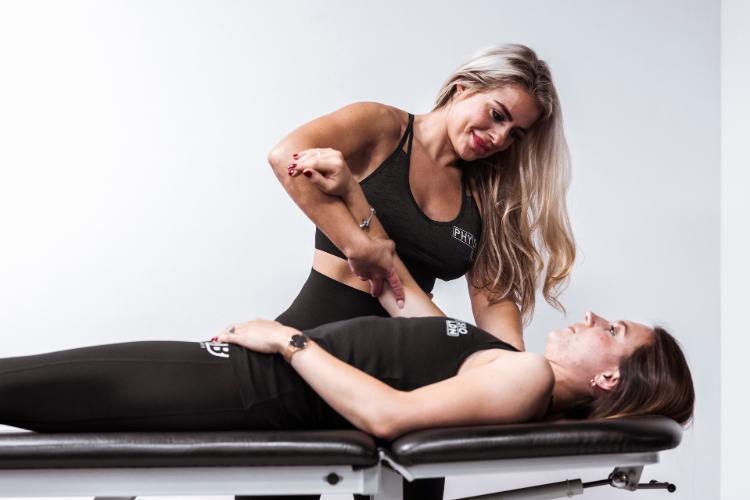
Timeline-Based Exercise Progressions
Physiotherapists create bespoke exercise plans tailored to each post-operative milestone. Immediately after surgery, you might begin with gentle range-of-motion routines; over time, you graduate to moderate weight-bearing drills, and finally to sport-specific or high-level functional movements.
According to the Chartered Society of Physiotherapy (CSP), such structured progressions can reduce recovery time by 20–30% compared to ad-hoc efforts at home.
Manual Therapy for Scar Tissue and Joint Mobility
Scarring from surgical incisions or hardware placement can inhibit flexibility, cause discomfort, or even trap nerves. Skilled physiotherapists employ manual techniques—like soft tissue mobilisation or joint manipulations—to break down scar adhesions, boost circulation, and realign the joint.
A 2022 Cochrane Musculoskeletal Group review found that combining manual therapy with active exercises alleviated post-operative pain more efficiently than exercises alone.
Psychological Empowerment
Undergoing major surgery often triggers anxiety and doubts about regaining full strength. Professional physios provide consistent encouragement and realistic benchmarks, preventing mental roadblocks from stalling your recovery.
Studies confirm that strong patient engagement correlates with better adherence to home exercises and, correspondingly, improved post-surgical outcomes.
How to Regain Strength, Mobility, and Confidence
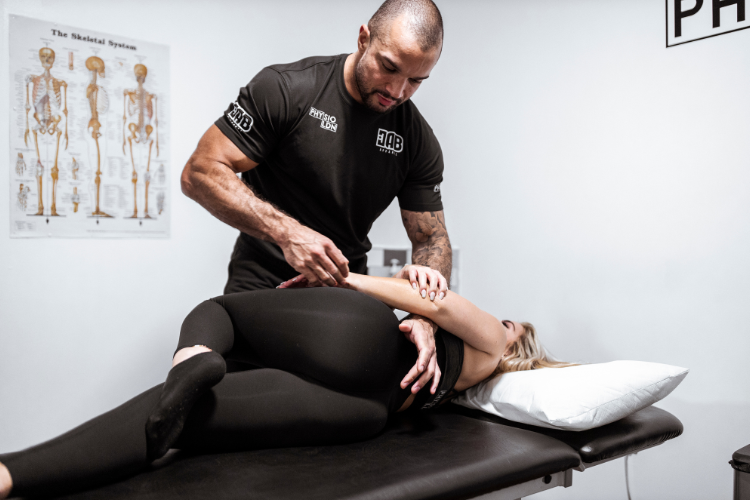
Progressive Loading, Home Exercises, Posture Improvement
1. Progressive Loading: Start with bodyweight activities—like mini squats or gentle glute bridges—and carefully introduce external resistance (light dumbbells, resistance bands) as your mobility and muscle endurance expand.
2. Home Exercises: Consistency in daily micro-workouts—e.g., foot pumps, straight-leg raises—keeps atrophy at bay between physio sessions. A 2021 American Journal of Physical Medicine & Rehabilitation study noted compliance with a home exercise regime as the single largest predictor of post-surgical functional success.
3. Posture: Many forget that surgical rehab goes beyond the operated area, requiring alignment checks across the spine and pelvis. Good posture fosters balanced muscle activation and mitigates undue strain on the lower back.
Pain Management Strategies, Mental Resilience
1. Modalities: Ice packs or gentle heat therapy help control inflammation and pain in the early stages. Meanwhile, ultrasound or electrical stimulation might be recommended for certain conditions.
2. Mental Resilience: Setting mini goals—like walking unassisted for 10 minutes or climbing stairs confidently—bolsters motivation. Celebrating each milestone reduces the psychological toll that extended recovery can impose.
Best Post-Orthopaedic Physio in London: Our Approach
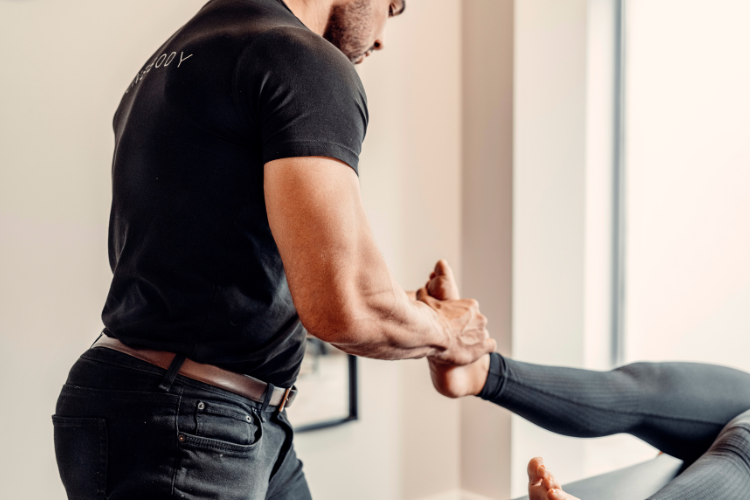
Insurance Coverage for Post-Surgery Rehab
At One Body LDN, we streamline orthopaedic recovery by liaising with major private health insurers—Bupa, AXA PPP, Cigna, WPA. This synergy cuts red tape, ensuring your sessions commence swiftly, free from needless out-of-pocket stress.
Whether you’ve had an ACL reconstruction or a spinal fusion, our HPCP-registered physiotherapists devise strategies unique to your clinical background and daily pressures.
Offer a Free Post-Op Consultation
Unsure how soon you should start rehab or which specific exercises suit your surgery type? We provide a complimentary initial post-op consultation to evaluate your range of motion, discuss your consultant’s notes, and recommend the ideal frequency of physio sessions.
This short assessment clarifies your journey ahead, bridging any communication gaps between surgeons, GPs, and your personal rehabilitation goals.
Conclusion
Recovering from orthopaedic surgery requires more than passive healing—active, guided physiotherapy transforms a challenging post-op phase into a structured, optimistic journey back to full strength.
To learn more about the broader role of rehab after surgery, explore our Importance of rehab physiotherapy.
Whether you’ve undergone a hip replacement, knee procedure, or spinal fusion, consistent rehab minimises complications like stiffness or chronic lower back pain.
By following progressive exercise progressions, embracing manual therapy, and securing mental resilience, you set the stage for a faster, more sustainable return to daily life.
At One Body LDN, our award-winning physios excel in helping you achieve peak results—integrating clinically proven protocols and supportive one-on-one care. Ready to accelerate your recovery? Start your treatment today or book a completely free assessment with our experienced surgical rehab team. Let’s strengthen your foundation for the future.
Physiotherapy FAQs
How soon after orthopaedic surgery should I begin physiotherapy?
Often, within 1–2 weeks. Surgeons typically advise an early start to prevent stiffness, but always consult your consultant’s recommendations first.
Can I do post-surgical rehab exercises on my own?
Some early exercises can be performed solo, but professional guidance ensures correct form, preventing re-injury or improper muscle activation.
Is it normal to experience pain during rehab sessions?
Mild discomfort or tightness is common, but excessive pain indicates you may need to modify your exercises or consult your physio about technique adjustments.
Does private insurance cover long-term post-op physio?
In most cases, yes. Providers like Bupa or AXA PPP frequently cover a specified number of sessions post-surgery, ensuring comprehensive follow-up.
What if I’ve developed lower back pain due to altered posture after surgery?
A targeted physio programme can correct compensations, restore proper alignment, and reduce strain on your lumbar spine.


